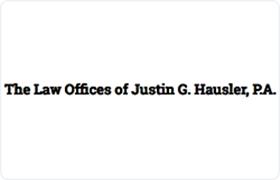Lake County, FL Criminal Lawyers
Sponsored Law Firm
-
 x
x

Click For More Info:
-
The Law Offices of Justin G. Hausler, P.A.
5570 South US Highway 17-92 Casselberry, FL 32707» view mapCriminal Defense Because Your Case Matters
As a Former Prosecutor, Justin G. Hausler has a wealth of jury trial experience and offers representation regarding all misdemeanor and felony charges.
407-617-1064
Timothy David Lucero
✓ VERIFIEDAccident & Injury, Criminal, Estate
Timothy Lucero is a practicing lawyer in the state of Florida.
FREE CONSULTATION
CONTACTChristopher R. Largey
Admiralty & Maritime, DUI-DWI, Criminal, Personal Injury, Car Accident
Status: In Good Standing Licensed: 26 Years
Jody Lynn Fisher
Federal Appellate Practice, Family Law, Criminal, Civil Rights
Status: In Good Standing
Christopher Robert Largey
Mass Torts, Federal Trial Practice, Criminal, Civil Rights, Personal Injury
Status: In Good Standing
Charles David Fantl
Other, Federal Appellate Practice, Family Law, Criminal, Accident & Injury
Status: In Good Standing
Candace Adelaide Hawthorne
Lawsuit & Dispute, Federal Appellate Practice, Divorce & Family Law, Criminal
Status: In Good Standing Licensed: 36 Years
Patrick Noll Harris
Education, White Collar Crime, DUI-DWI, Criminal
Status: In Good Standing Licensed: 33 Years
 Justin Hausler Casselberry, FL
Justin Hausler Casselberry, FL AboutThe Law Offices of Justin G. Hausler, P.A.
AboutThe Law Offices of Justin G. Hausler, P.A. Practice AreasExpertise
Practice AreasExpertise

